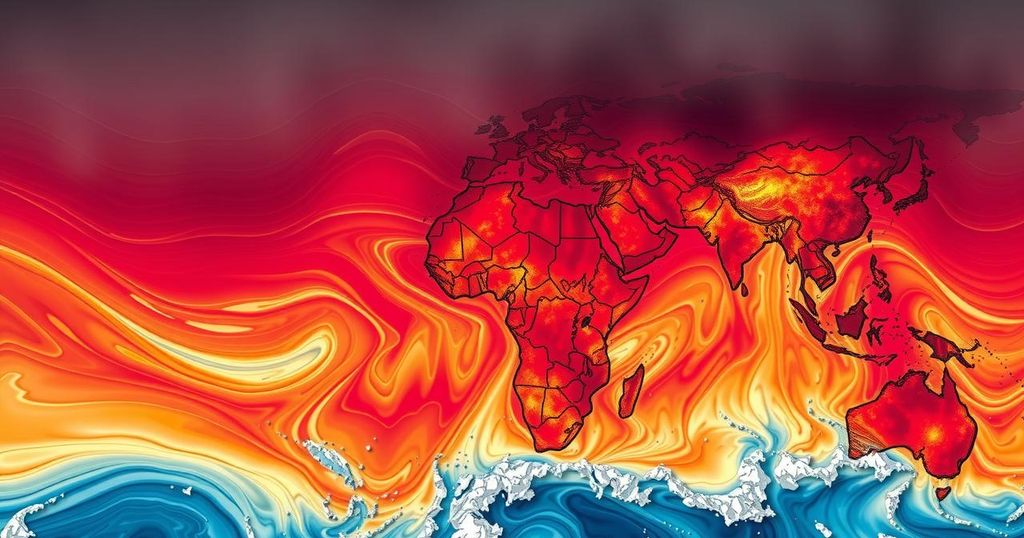In 2024, global temperatures reached record highs, exceeding the 1.5 degrees Celsius threshold agreed upon internationally. The WMO confirmed the urgent need for climate action, particularly highlighting the consequences of greenhouse gas accumulation. Despite political opposition, experts stress that immediate action is essential to prevent further climate-related catastrophes.
Recent assessments reveal that 2024 has set new records for global temperatures, marking it as the hottest year ever recorded, surpassing the previously established global warming thresholds. Both the European Union’s Copernicus Earth Observation Program and the World Meteorological Organization (WMO) acknowledged that average global temperatures exceeded the critical 1.5 degrees Celsius limit established in international agreements during both 2023 and 2024. UN Secretary-General António Guterres has emphasized the urgent need for robust climate action in the coming year, asserting that immediate measures are required to avert catastrophic outcomes.
The WMO’s assessment was issued shortly before Donald Trump assumed office, a figure who has publicly denied the implications of climate change while advocating for an increase in fossil fuel production. Guterres reinforced the gravity of the situation, declaring that the WMO’s findings starkly highlight the reality of global warming. WMO Secretary-General Celeste Saulo further elaborated on the continuous trend of record-high temperatures over the past decade, linking it to the adverse impacts of climate change, including extreme weather, rising sea levels, and the alarming rates of ice melt.
While it is noted that a single year exceeding a temperature of 1.5 degrees Celsius does not signify failure in achieving long-term climate goals set by the Paris Agreement, alluding to the importance of measuring progress over decades, the urgency to mitigate every fraction of warming remains critical. Samantha Burgess from Copernicus highlighted that the accumulation of greenhouse gases has led to unprecedented temperature levels that require immediate global attention. The data confirmed that in 2024, the average planetary temperature was recorded at 1.6 degrees Celsius higher than the pre-industrial era, significantly exceeding previous records. Under the auspices of the 2015 Paris Agreement, global leaders committed to curtailing temperature rises to prevent severe climatic consequences.
The escalation of global temperatures coupled with extraordinary weather patterns necessitates immediate action on climate change. In recent years, the effects of climate change have been increasingly evident, evidenced by extreme weather events, rising sea levels, and the rapid melting of polar ice caps. The findings from organizations such as the WMO and Copernicus serve as critical indicators of the need for global leaders to prioritize climate-related policies, reaffirming the commitments made under the Paris Agreement to limit global warming.
In summary, the alarming findings regarding the record temperatures of 2024 underscore the complexity and immediacy of the climate crisis. Global leaders are urged to respond decisively to these findings to mitigate further consequences of climate change. The scientific consensus is clear: without substantial action now, the potential for irreversible damage to our planet looms larger than ever. Immediate and collective climate action remains paramount to ensure a sustainable future.
Original Source: en.mercopress.com






